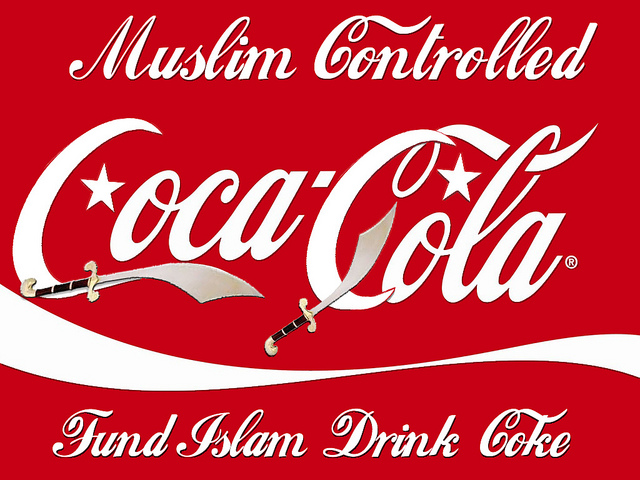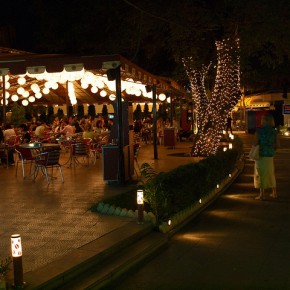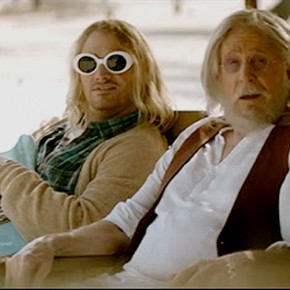Would the Prophet Muhammad have been anti-capitalist? Obviously, we cannot know. The Prophet’s experiences with mystical poetry, called “Revelation” by believing Muslims, are firmly grounded in their historical setting. They cannot offer direct insight on capitalism any more than they can provide a critique of Italian Futurism.
However, if we accept that Revelation was a historical event, and that the Qu’ran was provided to humanity based on where it was in 7th century Arabia (the Rationalist approach to Islamic philosophy), then we can reinterpret things to understand how they would apply in new periods.
For instance, although we obviously cannot cite a surah that chastises Italian futurists, we can certainly apply verses against iconography to the reactionary artistic movement. Similarly, an intelligent reading of the Qu’ran and the Prophet’s own life can provide us with the tools to speculate that he would have been an anti-capitalist today.
We have to begin with Muhammad himself, stretching back to the period before he was a Prophet. This is an area of his life that has unfortunately been obscured for many Muslims, due to the fantastical tales of 8th and 9th century storytellers. We shouldn’t arrogantly dismiss this “Folk Islam.” After all, it is an attempt to understand what prophethood even means. The historical record is very clear, though. Muhammad was a talented and deeply thoughtful man, but he was just that: a man. There were no hermits seeing the Light of God in his irises, and certainly no angels purifying his heart in the desert.
Muhammad began his life as an orphan, and briefly experienced the severe marginalization of settled Meccan society before joining his uncle as a minor trader. His reputation as a smart and honest man quickly spread, gaining him the attention of his first wife Khadija, an extraordinary businesswoman who had overcome tribal patriarchy to run her own enterprise.
After she sent him off with one of her caravans, and he came back with wild profits, she proposed marriage and he accepted. As a result, Muhammad joined the most respected classes of his clan. It would be crude to call him “middle class,” but he was certainly a gifted and wealthy merchant who became an established and respected member of the Banu Hashim clan of the Quraysh.
This meant that he participated in every part of Meccan society. Contrary to the folk Islamic belief that he never participated in pre-Islamic polytheism, both the historical record and basic logic suggests otherwise. Muhammad could not have retained his position without praying to the idols housed in the Ka’aba, and participating in the sacrifice rituals that formed the crux of Meccan society.
Muslims may find this point controversial, however, if we are to understand Muhammad’s deep conflicts about Meccan society at all, then we have to accept that he was intrinsically a part of the society whose socioeconomic bases he would later attack.
As Reza Aslan writes in his book No god but God, Muhammad was always deeply conflicted about the flaws in Meccan society, and the fact that he was actively participating in them. Part of this is because Muhammad was too smart not to realize that if he was not able to join his uncle’s trading business, he would have undoubtedly died as an impoverished orphan.

The other part is more complicated. Prophet Muhammad was one of a growing number of individuals who felt increasingly disgusted by the excesses of Meccan society, in contrast to more ancestral tribal values of community and shared responsibility.
The Quraysh had essentially built a situation in 7th century Mecca where they alone held the most significant idols on the Arabian Peninsula, and in order to pray to them, devotees had to pay the right price. This made them extremely powerful, and wealthy, but also facilitated an enormous amount of inequality among the settled urban dwellers in Mecca that was very distant from the Peninusla’s tribal roots.
Muhammad’s feelings about this were complicated because he was a major part of the system. He even had his own slave. It is no wonder that he spent so much time alone in the mountains, and was known to be a deeply introspective man. Were Muhammad born today, he would have likely been a disaffected businessman: actively benefiting from the system, but too smart and gentle not to see what was going on, and secretly yearn for something else.
It is this Muhammad that was gripped by an invisible presence in a cave one night, and told by a booming voice, “Recite!” Believing Muslims believe that this was the work of the Angel Jibra’eel. The non-religious alternative to this is simple. Muhammad could have been so troubled by the issues weighing down on his mind, that he was completely overwhelmed by them, which he took to be a supernatural experience, especially after talking to his wife Khadija.
We have to remember the setting. Pre-Islamic Arabia had all matter of soothsayers and priests who surrendered to their basest instincts in order to atavistically express the will of the gods. The Prophet’s Revelations could have easily been controlled breakdowns, and surrenders to raw emotionality, that we don’t see as channeling the divine in modernity.
Essentially, Muhammad became so torn about the failures of Meccan society, and its betrayal of the tribal ethic, that he eventually had no choice but to surrender to himself and the strength of his cognitive dissonance. It was then alleged to be Allah speaking to him. After all, one of the Prophet’s accounts is that he felt words stamped upon his heart by Jibra’eel.

Regardless of which explanation is true, it is very clear that this Revelation had a very radical economic vision. I stress the word “economic” because that was the main threat that the Quraysh sensed from Muhammad in these early years. It simply doesn’t make sense that they would hound him mercilessly out of some religious obligation to the idols.
Many Muslims are taught that the Quraysh rejected Muhammad because of their disgust for Islamic monotheism. However, there is no reason to believe this. After all, the Quraysh already had very healthy trading relationships with other monotheists on the Peninsula, including Yathribi clans that were at least avowedly Jewish, and extremely wealthy Christian monarchies in Ethiopia and Yemen. They also would not have been surprised at the idea of an Abrahamic religious revival, since the monotheistic Hanifists were already an established sect making exactly that point.
Rather, the issue that the Quraysh had with Muhammad is that he proposed an “Allah” with no earthly intermediaries. Allah could be reached in the individual without the need of any institutions to pass their prayers on, which happened to include the idols in their money-making Ka’aba. The Quraysh could not tolerate this potential assault on the main source of their power, and thus, schemed against the Prophet endlessly.
Muhammad knew this, but was also aware that the vision of his new faith would be stunted if it didn’t confront the Quraysh. After all, they were the main engine of the inequalities and moral ambiguousness that defined the worst aspects of Meccan society. This is exactly why, from the very beginning, the Revelations contain terse admonishments of wealth accumulation. Take the polemics of these lines from Surat Al-Humazah, for instance:
(104:1 – 104:6) Woe to every scorner and mocker;
Who collects wealth and [continuously] counts it!
He thinks that wealth will make him immortal.
No! He will be surely thrown into the Crusher.
They occur alongside other surahs like Surat Ad-Duha, which commands Muslims not to drive away beggars or oppress orphans, instead “reporting it,” by which it means handling the problem as a community effort. We can assume the latter because that would have been the Bedouin way of dealing with the problem, and the entire point of the ummah was to fuse a new revolutionary doctrine of gentle egalitarianism with a revived notion of humanity as a tribe without divisions.
The Prophet did not seek to liberate all of humanity in these early years, though. He sought to liberate the Arabian Peninsula specifically from social stratification, greed, and the violence that accompanied those characteristics. It was only upon his exile to Medina, and after the death of his uncle and Khadija, that Muhammad would go further. Not only did the scope of his message’s audience increase, but it would also include structural attempts to alleviate economic injustice.
For instance, it is in Medina that Muhammad would outlaw interest, usury, institute a mandatory redistribution tax known as the zakat (with helping the poor being seen as a major step towards salvation,) and build a tax and interest-free marketplace for the ummah. He would also specifically describe the fasting of Ramadan as an act of solidarity with the poorest and most hungry sections of society.

Does this make Muhammad anti-capitalist, though? As we said before, no. However, it does illustrate the type of societal ills that enraged him, and helped propel the creation of Islam in the first place. The world has changed immensely in the past 1400 years, but his core grievances still apply. Contemporary society is one which simply normalizes social stratification, greed, and its accompanying violence. If Muhammad hated those features in Mecca, he would have surely hated them as they are made manifest in the global economic system.
I grew up listening to half-literate neighborhood muezzins asking facile questions. If the Prophet was deeply haunted by the problems facing Meccan society, how would have he felt about a world in which hundreds of millions starve? If the Prophet was disgusted by how the Quraysh were exploiting the Ka’aba to get rich off of people’s need to pray, what would he have thought about Saudi Arabia’s project of turning Mecca into a center for spiritual tourism? If the Prophet desired a new definition of tribal community that could tackle the fragmentation of urban life in Mecca, how would he have reacted to American suburbia and its relationship to the inner city? And so on.
There is something to them, though. What would the Prophet have done to tackle modern issues like market-driven society and its accompanying problems? It is crucial that we ask ourselves why, because Islam was never meant to be a petrified religion that was revealed in its most pristine form. This idea is challenged by the format of the Qu’ran itself, which frequently has passages contradict each other because later Revelations supersede the older ones.
The Prophet wasn’t fazed by this. We have to remember that Muhammad itself never even bound the Qu’ran. This was done by the Caliph Uthman, who collected various writings of the surahs and bound them decades after his death. The Prophet was probably informed by the tradition of pre-Islamic Arabian kahins, who were poets that purportedly had a link to the divine.
Like them, it is very likely that he never viewed his message as a petrified institution to be passed on by an orthodox community. That is probably why he never even bothered bringing them together in a book, perhaps even assuming that they would be transmitted orally. Rather, he understood that his Revelations were cryptic, and would need to be continuously reinvented and reinterpreted by an ummah that is constantly facing new challenges.
The Prophet’s Islam was a religion in motion, not simply something to be defended by the reactionary statement, “Islam is for all times.” Statements like that liberate their speakers and listeners from critical thought by not really saying anything at all. Muhammad was better than that. He understood Islam to be a historical process that needs to be continuously reinvented in the face of shifting circumstances. This is exactly why the Meccan surahs have such a different tone than the Medinan ones, which deal much more firmly with governance and Islamic praxis.
The question is, what sort of politics should Muslims practice today that continues this tradition? If the goal is emulating the prophet, then we cannot stop at simply praying a little more. We have to give into our sense of outrage, and channel it towards a form of politics that is able to positively handle modern social struggles. Doing this is the best way to modernize Islamic practice, and also happens to link us far closer to the Prophet himself than any amount of Arabic-language religious chanting.
It also cannot avoid the fact that market-driven societies, with their reliance on Anglo-American free market economics, are impossible to consolidate with any ethical (or even accurate) reading of the Prophet’s message.
He may have been primarily concerned with a “neo-tribalism” that answered the problems of Arabia in his historical period, but the characteristics of it that he disdained clearly have new manifestations in neoliberalism. It is fair to say that he would have hated it too, and that his prescription of a new sense of grassroots openness would have had a different face given the nature of modern production.
After all, Mecca’s various problems drove him on a journey that included the Covenant of Medina. Seeing that was an alternative form of liberatory governance in every sense, it is fair to say that had his disaffection occurred today, he would have explored brand new ways of envisioning democracy.
Photographs courtesy of Richard Lloyd French, Kashfi Halford, Koshy Koshy, and Nabeel Yoosuf. Published under a Creative Commons License.





